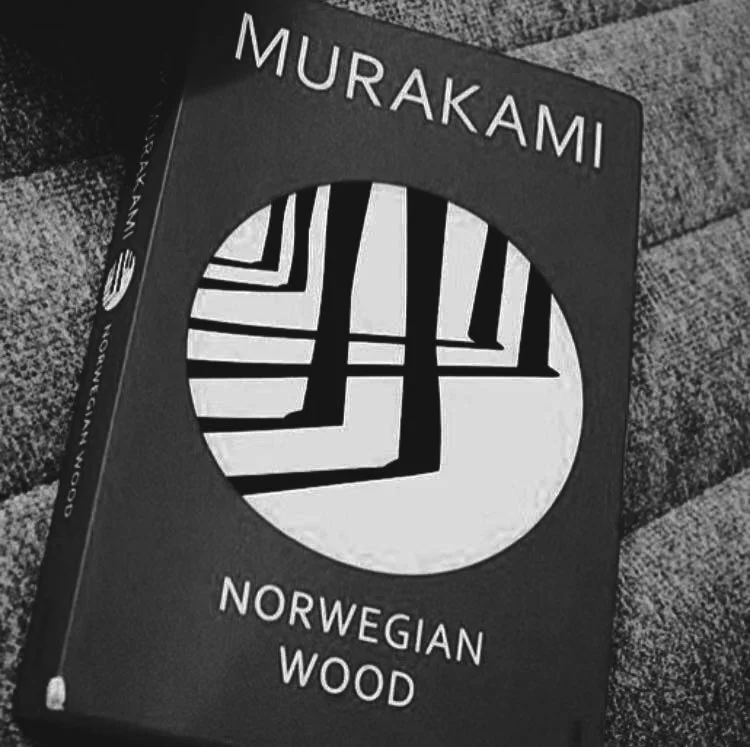Norwegian Wood by Haruki Murakami
Speculative fictions whose attempt is to strip away the world as we know it can be a tricky territory. These work can be written overly dramatic, frantic, didactic, or jam-packed with philosophical questions about life and death that leave no room for contemplation. Think Ayn Rand. Actually, think Ayn Rand on her best day.
Or they can be written like Norwegian wood: Calm, dark, elegiac, beaming from within like a mysterious firefly, unhurried; brewed in small acts and allusive landscapes. Lonely, depressed, yet radiant. At the very end, it just takes a piece of you and leaves you in aghast and feeling a little empty.
Haruki Murakami has written something very much akin to a perfect novel. Norwegian wood is NOT a sappy love story as some fans will tell you. Instead, it is a sprawling peak into the lives of a group of severely broken youths confronting the realities of emptiness.
There is the past and death. Then there is future and life, served on a silver platter, which one do you take?
Seems like a no brainer. But what if you are in love with the past? What if the dead carry so much of ourselves that living without them is not quite living anymore? What if the prospect of the future feels like a brutal betrayal of the dead? How can you ever turn your back on your loved ones who are desperately clinging on you? Life is erratic, true love isn’t. “Let bygones be bygones.” Words are always easier said than done.
As 37-year-old Toru Watanabe arrived in Hamburg, Germany, he heard a fragment of the titular Beatles track “Norwegian Wood”; suddenly, his memories are returned to his days as a young student and his love affair with a beautiful but damaged girl. This girl is named Naoko, she was his best friend Kizuki’s girlfriend, and as their best friend, Toru was more than happy to be their enforcer. They were like Les Trois Mousquetaires. The three inseparables. Soulmates. Yet this idyllic existence was shattered by the unexpected suicide of Kizuki on his seventeenth birthday. Toru and Naoko felt the influence of death everywhere, and they will continue in life in this sea of emptiness.
To avoid spoilers, I can’t continue blabbing about the plot. All I can say is that, this is a dangerous book. Murakami’s characters are so dangerously, tragically real. They are some of the most human I’ve ever encountered on a page. Norwegian wood is also dangerous as it has death as a topic lingering throughout the story, plus a sense of universal appeal: the dilemma of wanting to move on but being weighed against a past clinging onto us, whatever that past may be.
This book radiates softly in the background of my high school days, and haunts me with its delicate characters and existentialist essence. I have no more words for this book. If you decided to ride this masochistic ride, cue the music of Beatle’s and get lost in the Norwegian wood.



